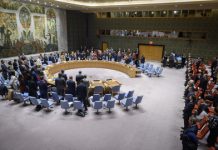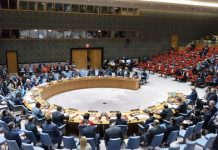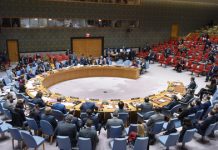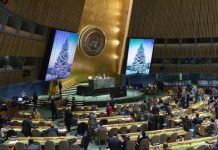Photo credit: DiasporaEngager (www.DiasporaEngager.com).
11 February 2025, Nairobi –The International Organization for Migration (IOM) and 45 humanitarian and development partners are appealing for USD 81 million to provide lifesaving humanitarian assistance to over one million migrants — including women and children — and the communities that host them in Djibouti, Ethiopia, Somalia, the Republic of Tanzania, Kenya and Yemen. The funding request falls under the Migrant Response Plan for the Horn of Africa to Yemen and Southern Africa (MRP), coordinated by IOM.
Hundreds of thousands of migrants embark each year on dangerous irregular journeys, primarily from Ethiopia and Somalia, aiming to reach Gulf nations including the Kingdom of Saudi Arabia via Djibouti and Yemen. On another route, migrants travel through Kenya, Tanzania, and other Southern African nations, with the hope of reaching South Africa.
These perilous and life-threatening journeys are largely taken by migrants who are desperately searching for work because of grinding economic hardship and poverty, and in some cases because of violence and political instability at home. Also, climate shocks and disasters are increasingly becoming a migration driver.
“Every day, countless women, men and children face deadly risks along the Eastern and Southern migration routes in Africa,” said Amy Pope, IOM’s Director General. “Without immediate support for migrants and the communities that host them, suffering will deepen, tensions will rise, and life-saving aid will remain out of reach. The time to act is now—we must step up to protect lives, strengthen protection systems, and tackle the root causes of displacement.
Last year 446,000 movements were tracked along the Eastern Route, 10 percent of which were by children, according to the IOM Regional Data Hub for East, Horn and Southern Africa. On the route migrants are often subject to life-threatening conditions, including starvation and dehydration. According to IOM’s Missing Migrants Project, at least 559 people lost their lives along the Eastern and Southern routes in 2024, while many more deaths are known to go unreported. Women and girls, who make up nearly a third of the tracked movements, often risk facing sexual and gender-based violence. Migrants also often face violence, exploitation, and abuse, and risk being targeted by human traffickers and arbitrary detention.
According to MRP partners, over 1.4 million migrants and the communities that host them along these routes will need assistance this year. The needs include food, non-food items, medical care, water, sanitation and hygiene, protection, psycho-social support, along with voluntary return and reintegration support.
MRP partners have been responding to the needs of migrants and host communities on the routes, while working to support governments in the region, civil society and other partners to address immediate needs, and also to address the root causes of irregular migration. But the MRP remains chronically underfunded. In 2024, an appeal for USD 112 million was launched, but it remains 80 percent underfunded.
“Migration is a global phenomenon that requires global solutions. We must work together to create a world where migration is a choice, not a necessity, and where all migrants are treated with dignity and respect” said Dr. Abera Adeba, Executive Director, Agar Ethiopia Charitable Society.
“Children and adolescents on the move in Eastern and Southern Africa face immense challenges and perils along migration routes. Children are three times more likely than adults to experience violence, exploitation and abuse during their journeys,” said Alison Parker, Deputy Regional Director, Eastern and Southern Africa Regional Office, UNICEF. “The Migrant Response Plan presents a critical inter-agency support framework to collaboratively address these vulnerabilities, coordinate the provision of services to migrants and host communities and safeguard children and their families, throughout their migration journey.”
“With the steady deterioration of the economic and instability context in East and Horn of Africa, the motivation to move out is at a new peak,” said Mutuku Nguli, Chief Executive Officer, Counter Human Trafficking Trust East Africa. “This reality has further weakened the community support structures along the transit routes while at the same time aggravating the risk factors associated with irregular migration in Horn of Africa to Yemen and Southern Africa routes. This appeal therefore offers the best opportunity to rescue the situation”.
Note to Editor
To learn more about the Regional Migrant Response Plan (MRP): https://www.mrp-easternroute.com/
MRP section in the Global Humanitarian Overview (GHO): https://reliefweb.int/report/world/global-humanitarian-overview-2025-enarfres
Link to the GHO: https://www.unocha.org/publications/report/world/global-humanitarian-overview-2025-enarfres
For more information, please contact
In Nairobi : ronairobimcu@iom.int, +254 797 735977
Source of original article: International Organization for Migration (www.iom.int).
The content of this article does not necessarily reflect the views or opinion of Global Diaspora News (www.GlobalDiasporaNews.com).
To submit your press release: (https://www.GlobalDiasporaNews.com/pr).
To advertise on Global Diaspora News: (www.GlobalDiasporaNews.com/ads).
Sign up to Global Diaspora News newsletter (https://www.GlobalDiasporaNews.com/newsletter/) to start receiving updates and opportunities directly in your email inbox for free.






























